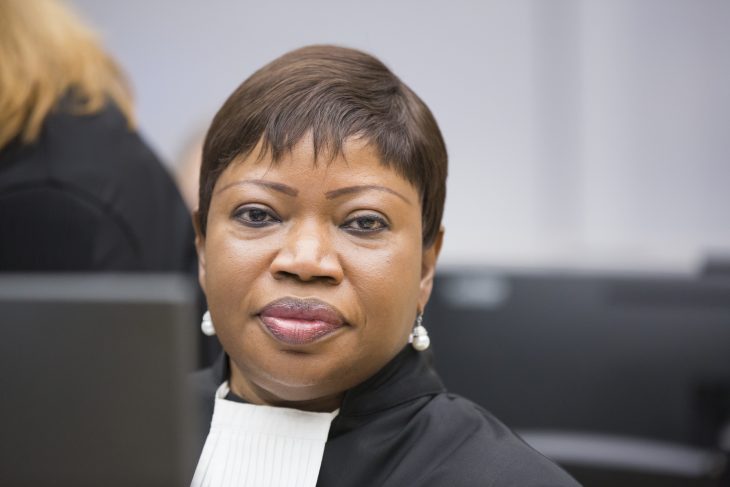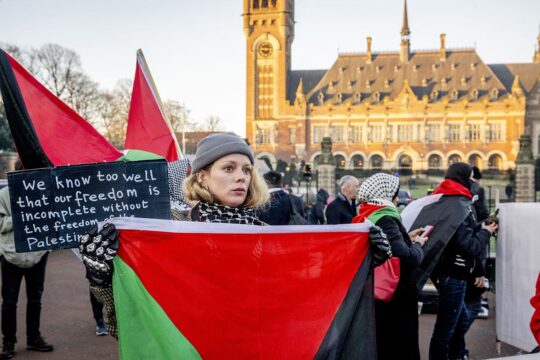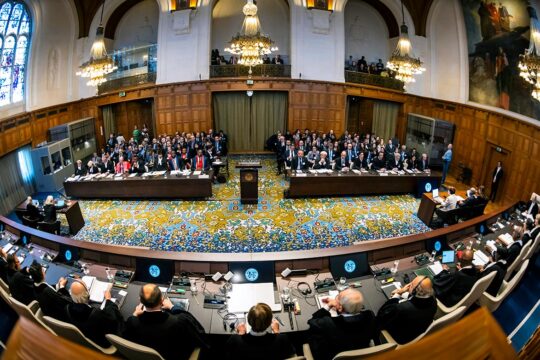After Burundi, South Africa. One after the other, two African countries in a week decided to leave the International Criminal Court, decisions which could be infectious on a continent that is already suspicious and critical of the Court in The Hague.
The two countries cite the same reasons of "national sovereignty" and accuse the ICC of anti-African bias. For Burundi, the fact remains that the announcement by a desperate regime fearing prosecution by the Court is above all opportunistic.South Africa’s decision is likely to have more consequences, given Pretoria’s political and diplomatic weight. This withdrawal, the first since the establishment of the Court, is all the more significant because it comes from a country that that is a symbol and pioneer of transitional justice. Is it likely to spark an “Afrexit”? “The African Union has for several years threatened a mass withdrawal, but has never managed to unite on this,” writes our correspondent in The Hague Stéphanie Maupas. “Has Burundi now triggered a movement that could snowball into a gradual Afrexit? Eyes are now turning to Kenya and Uganda, which are active critics of the Court.”
It is true that the Court has concentrated most of its investigations and all its trials on Africa but, in its defense, African nationals have often been brought before the ICC at the request of their own countries.Pretoria’s decision brought immediate protest from the NGO community and other international justice defenders. “South Africa’s intended withdrawal from the ICC represents a devastating blow for victims of international crimes across Africa,” said Mossaad Mohamed Ali of the African Center for Justice and Peace Studies. “As South Africa is one of the founding members of the court, its announcement sends the wrong message to victims that Africa’s leaders do not support their quest for justice.”
Earlier in the week, the ICC found warlord and former vice-president of the DRC Jean-Pierre Bemba guilty of having bribed at least 14 witnesses. This is a first for the Court, which has made the DRC a flagship country in its trials.
There are also transitional justice lessons to be drawn from the way German judicial authorities are treating Enoch Ruhigira, the last head of presidential staff of Rwandan President Juvénal Habyarimana. Ruhigira, a Rwandan who has become a New Zealand citizen, was arrested last July in Frankfurt at the request of Kigali for suspected involvement in the 1994 genocide. But Professor André Guichaoua of the Sorbonne in Paris points out the weaknesses of the indictment drawn up by the Rwandan prosecutor’s office, and the problems of judicial cooperation with that country.
Finally, in Tunisia, the Truth and Dignity Commission (IVD) continues its work of documenting the crimes of dictatorship with the support of a team of 60 scientists. Our correspondent Olfa Belhassine gives an overview of cases documentd by the Commission. "According to preliminary figures, there are 32,228 Islamist victims of numerous violations,” she writes. “This is the biggest group of victims. Next come trade unionists (5676) and left-wing activists (3308). Human Rights activists (180) were subjected to hundreds of violations of all types.
"Slah Eddine Rajhi, director of studies at the IVD, says"The second phase of our job is to listen to the victims whose cases have been filed with us. By putting together information from our external and internal sources, we will be able to clarify and reveal the truth about the many human rights violations that have marked our history.






